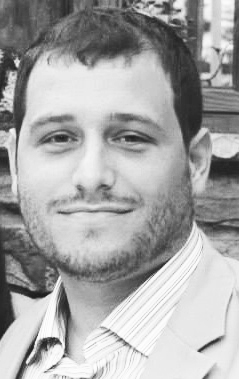In the effort to address a regional shortage of services, the department of psychology is developing an autism and applied behavior analysis center that will open late winter.
 The center will allow NMU to expand the psychology department’s current bachelor and master programs in applied behavior analysis (ABA). Both of which are designed to meet required course sequences and provide supervised experience necessary for graduates to become board certified assistant behavior analysts and full behavior analysts.
The center will allow NMU to expand the psychology department’s current bachelor and master programs in applied behavior analysis (ABA). Both of which are designed to meet required course sequences and provide supervised experience necessary for graduates to become board certified assistant behavior analysts and full behavior analysts.
“As students are currently mandated to complete these experiences in the field, we are limited in how many direct supervision hours we can provide,” said Jacob Daar, coordinator of the ABA master’s program.
The center’s primary purpose will be to deliver ABA therapy services to children with Autism Spectrum Disorder (ASD) and other developmental disabilities. The services the clinic will provide include early intensive behavior interventions and comprehensive behavior programming for children with such disorders. The programs will focus on development of social skills, teaching functional living skills and promoting alternative behaviors over problematic ones.
Daar said there are currently 10 board certified behavior analysts in the Upper Peninsula but over 400 children diagnosed with autism.
He said several factors have contributed to the shortage of ABA services noting the prevalence of Autism, which is 1 in 68 children according to a report from the Centers for Disease Control, and the number of hours needed to provide therapeutic services per individual.
Therapy for a single individual would require 15 to 40 hours per week depending on need, which makes it harder for ABA practitioners to take on new cases.
“Unfortunately, families seeking ABA services in the U.P. have encountered difficulties finding local clinics and qualified practitioners,” Daar said.
A benefit of the clinic is that it would allow the psychology department to conduct research aimed at improving assessment and treatment programs for autism.
This will also allow NMU to support the community mental health facilities, school districts and private agencies attempting to build ABA programs by graduating more qualified practitioners and facilitating research on ABA therapies, Daar said.
“By establishing such a center, we expect NMU to become a centralized resource for ABA training and service,” he said. “University centers also allow families to have access to doctoral level practitioners and researchers who have more experience addressing complex or unusual cases.”
Daar and instructor Jeremy Biesbrouck, both board certified behavior analysts, will facilitate and supervise the training of graduate and undergraduate students in the campus ABA center that will be located in the area of the Services Building currently occupied by Human Resources.
Daar will serve as the clinical director of the center, while Biesbrouck will oversee some of the operational procedures involved with students working to become licensed practitioners. Students will work under the supervision of other board certified analysts that include some of the NMU faculty. Biesbrouck said the center will allow bachelor’s level psychology majors to earn professional credentials that would enable them to get jobs more easily after graduation. He said usually with a bachelor’s degree in psychology, it’s hard to find work.
“Typically you need to go under a graduate program to get an advanced degree,” Biesbrouck said. “The center will enable us to provide undergraduates opportunities to get professional experience under supervision so they then can be credentialed at the bachelor’s level—so if they don’t wish to seek out a graduate degree, they’re still extremely valuable for the job market.”
Biesbrouck said as a former NMU student who earned a bachelor’s in psychology, the certification will make a big difference for psychology majors. He also said the department is looking for ways to open the center to majors from other disciplines.
“It not only will help individuals in the psychology department—we’re looking ideally to help other individuals from other majors as well get credentialed,” Biesbrouck said.
The center will be a nonprofit and research facility, but some associated costs will come from therapists and supervisor wages for therapy services, Daar said.
Therapy will be provided by students enrolled in practicum courses that will count toward their certification from the Behavior Analysis Certification Board.
As enrollment in ABA practicum courses increase and other funding sources become available, the center is expected to expand its capacity for cases. NMU faculty members expected to instruct practicum courses will supervise students who must complete 10 to 20 hours per week of ABA services.
“By remaining free of funding requirements associated with particular diagnoses, we will not need to exclude children who demonstrate need but not autism criteria,” Daar said.
Although departmental and administrative support from NMU has been helpful in securing the necessary development funds, faculty will also be seeking research and service grants once the center has been established, Daar said. Private donations can also be made and will be used to support the service, training and research programs at the ABA center.
The center is expected to open by late January or early February of 2017.























